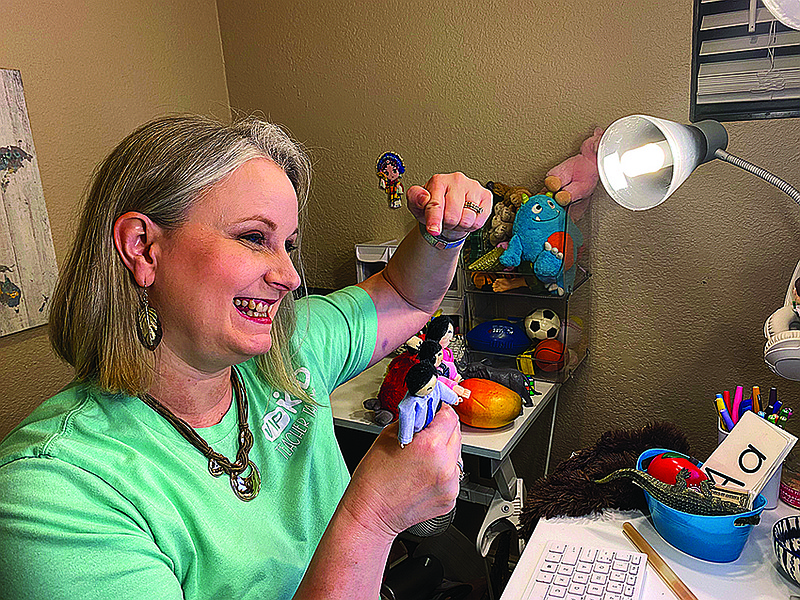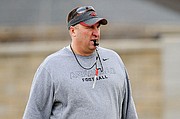Teachers often see vast social changes from the front lines, and local teachers with side jobs teaching English to students in China got a first-hand look at the profound impact COVID-19 visited on their daily life.
Tanya Fowler is one of those local English as a Second Language instructors. A librarian and teacher at Genoa Central Elementary School, Fowler says it's like deja vu seeing the pandemic hit the United States after witnessing its impact on her students back in January.
Right away around that time, her students moved to online learning at their Chinese schools. "And it happened really fast," Fowler said. Younger students told her they spent an hour or more watching videos with teachers and PowerPoint-style presentations, then have work to do.
"The older kids were telling me, and I'm talking like middle school they were literally spending seven hours of the day in online classes," Fowler said. Students would go from teacher to teacher, class to class. "That blew my mind," she admits about how quickly online teaching was arranged in China.She could sense the vast shift in her student's daily lives, the limitations they had as China fought the virus.
"They started talking about not going out. I have students that haven't been out of their homes since December or early January. They'll say, 'Oh, my mom goes to the store but I haven't been out of the house,'" she said. Or if they have ventured outside, it's limited.
"Lately, though, the last two weeks, I'm starting to have kids say, 'Oh, I went to the park for a little bit today,'" Fowler said. But one student told her she's too scared and nervous to go outside.
Fowler is concerned about how these events may affect her students' personalities, particularly with kids who may be tentative or fearful. She saw it separate families. And now the pandemic is hitting the U.S.
"It's so surreal because I saw it happening there and there's one kid I've had for years, and his dad is a doctor and his mom is a nurse," Fowler recalled, pointing out this all began around Chinese New Year. This young boy wound up staying with grandparents, who lived far away, until a couple weeks ago as his parents worked all the time.
For her, it's not surprising to see what's happened here once the dominoes started to fall. "I had seen it all play out," Fowler said. She didn't think this would happen here, too, but once it did the turn of events, with schools canceling, made sense. Seeing China come out of it, though, gives her hope.
"Back when this was all happening early, there was a lot of VIPKid teachers that were sending masks to their students," Fowler said. "And now, there are a lot of VIPKid students that are sending masks to their teachers in America."
For Fowler, teaching these kids is a one-on-one endeavor with roughly 25-minute lessons. Chinese parents schedule classes with teachers they want. "It allows you to develop relationships with these kids," Fowler said. She's had some students for years. "You really feel like they're your students."
She forms tangible student-teacher relationships with her Chinese English language learners. Learning English is a big deal there. She teaches via VIPKid, an online service, and the instruction gives students experience learning from a native English speaker.
"You grow this bond with your students, just like you do in the classroom," he said, noting their teachers are able to pick up on common mistakes, such as leaving out articles. "They don't have articles in Chinese." Plurals, because they don't exist in the Chinese language, present another challenge.
Her students range from 5 to 13 or 14 years old, typically. "Usually they tend to be upper elementary to middle school age," she said. About children at that age, she says, "Their minds are like little sponges." In China, she explained, people show wealth by giving extra educational opportunities to their children.
"That's considered your badge of honor," said Fowler, who typically starts her day at 4:30 a.m. or 5 a.m. She teaches a couple of hours before her day job begins at 8:05 a.m., when a normal routine applies. She's a librarian, but as an activity teacher she has a full schedule of instructing elementary students.
In some respects, her two jobs demand different skill sets. Similarities remain, though.
"But I will tell you one skill set that really transfers that helps me a lot is that in my regular teaching job I can go from having a class of 4th graders and then five minutes later I have a class of kindergartners," Fowler said. "You have to really quickly change your vocabulary and change the way you present yourself."
It's the same teaching her VIPKids. She might have a session teaching vowels with one student, then teach about Harriet Tubman with a different student just minutes later. Another transferable teacher skill? "Just how to read a kid's face to know if they're getting or they're not getting it," she said, noting she enjoys the one-on-one work and individual relationships.
Likewise, Carol Stacy teaches 1st grade youngsters in Fouke but also logs hours teaching youth in China about the ins and outs of English. She was skeptical about online teaching, but she then found she enjoyed it and received the interaction she needs as a teacher."I've been teaching three years in June," Stacy said. She has VIPKid students who've been with her from pretty much the beginning. "It is completely English immersed," she said. She has a classroom's worth of regulars.
"Like I said, I was a little wary at first but then when I started teaching, you do get involved in the kids. My regulars, I've met their parents, I know their siblings. Several of my regular kids, the family will come in and say hi. They'll come in and speak to me," Stacy said. For her, it's more than just teaching through a screen.
And she, too, has seen how the coronavirus pandemic has affected her students' daily lives.
"It has been very interesting because I saw what was coming back in January when it hit them so hard," Stacy said. Her older kids were able to talk about lockdowns when their parents could only go out for groceries.
"One little boy, his dad had just taken his mom to the hospital and he was very upset," Stacy said. "Having to wear the mask. I remember one of my girls told me all of a sudden the price of masks went very high and most people couldn't even afford masks at that time."
She saw how older children already had a place for online classes, but schools scrambled to get it done for younger students. "I was impressed with their teachers," Stacy said. They delivered books to their students' houses.
None of her Chinese students have returned to in-class school. Some told her they'd head back sometime in April. Otherwise, they're still quarantined. "I know a lot of the parents have started going back to work," she said.
As a teacher, what did Stacy think when the coronavirus started popping up here in the U.S.? For one thing, reaching students while local schools are closed becomes a challenge. She's been impressed with teachers across the country here who've "picked up and done extraordinary things," she said. She's also impressed with companies who offered free learning services, too.
"I've just been so proud to be an American - that everybody's pulling together to help our kids," Stacy said.
The district provided educational packets to Fouke students, along with some online teaching, she explained. Because it's a rural community, many students there have limited access to computer technology. "We needed to make sure that they had other stuff at home to cover those kids that were not able to get to the technology," Stacy said.
Having seen the impact COVID-19 had in China, she noticed the different response here.
"A lot of people were not taking it seriously. I had already seen the impact it had on China. For them to close all their schools and they had to wear masks - most of my kids live in apartment buildings. Their apartment buildings had been shut down; they only had one door for them to come in and out if they left. When they came back in, they checked their temperature to make sure that nobody that was infected had come into the building. They took it very very seriously," Stacy said. "So I knew that it was more serious than most people were taking it."
Her Chinese students are ready to go back to school.
"Most of them want to go back to school. I guess just like American kids they miss their friends and being able to get out, do sports, do games and socialize. They're not able to go to the mall or hang out," Stacy said. "That social part of it is a big thing."
Reflecting on it, she says one thing she's learned through the experience is how alike we are.
"Their homes, their lifestyles, they have the same wants and dreams that we do. The parents want their kids to succeed, they want them to learn," Stacy said.



